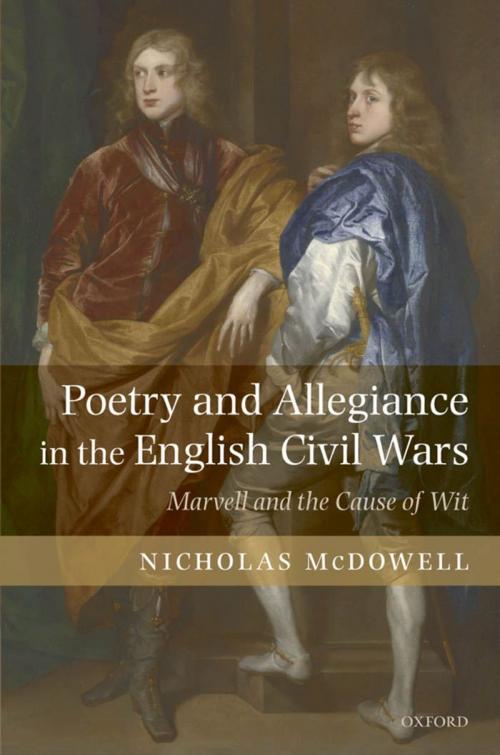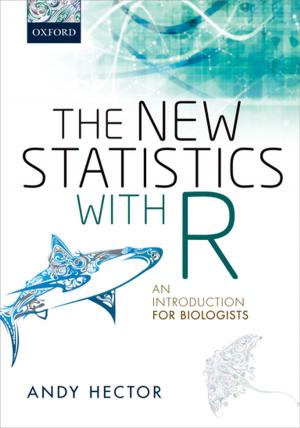Poetry and Allegiance in the English Civil Wars
Marvell and the Cause of Wit
Nonfiction, Entertainment, Drama, Anthologies, Fiction & Literature, Literary Theory & Criticism, History| Author: | Nicholas McDowell | ISBN: | 9780191608506 |
| Publisher: | OUP Oxford | Publication: | November 20, 2008 |
| Imprint: | OUP Oxford | Language: | English |
| Author: | Nicholas McDowell |
| ISBN: | 9780191608506 |
| Publisher: | OUP Oxford |
| Publication: | November 20, 2008 |
| Imprint: | OUP Oxford |
| Language: | English |
This book is about the things which could unite, rather than divide, poets during the English Civil Wars: friendship, patronage relations, literary admiration, and anti-clericalism. The central figure is Andrew Marvell, renowned for his 'ambivalent' allegiance in the late 1640s. Little is known about Marvell's associations in this period, when many of his best-known lyrics were composed. The London literary circle which formed in 1647 under the patronage of the wealthy royalist Thomas Stanley included 'Cavalier' friends of Marvell such as Richard Lovelace but also John Hall, a Parliamentarian propagandist inspired by reading Milton. Marvell is placed in the context of Stanley's impressive circle of friends and their efforts to develop English lyric capability in the absence of traditional court patronage. By recovering the cultural values that were shared by Marvell and the like-minded men with whom he moved in the literary circles of post-war London, we are more likely to find the reasons for their decisions about political allegiance. By focusing on a circle of friends and associates we can also get a sense of how they communicated with and influenced one another through their verse. There are innovative readings of Milton's sonnets and Lovelace's lyric verse, while new light is shed on the origins and audience not only of Marvell's early political poems, including the 'Horatian Ode', but lyrics such as 'To His Coy Mistress'.
This book is about the things which could unite, rather than divide, poets during the English Civil Wars: friendship, patronage relations, literary admiration, and anti-clericalism. The central figure is Andrew Marvell, renowned for his 'ambivalent' allegiance in the late 1640s. Little is known about Marvell's associations in this period, when many of his best-known lyrics were composed. The London literary circle which formed in 1647 under the patronage of the wealthy royalist Thomas Stanley included 'Cavalier' friends of Marvell such as Richard Lovelace but also John Hall, a Parliamentarian propagandist inspired by reading Milton. Marvell is placed in the context of Stanley's impressive circle of friends and their efforts to develop English lyric capability in the absence of traditional court patronage. By recovering the cultural values that were shared by Marvell and the like-minded men with whom he moved in the literary circles of post-war London, we are more likely to find the reasons for their decisions about political allegiance. By focusing on a circle of friends and associates we can also get a sense of how they communicated with and influenced one another through their verse. There are innovative readings of Milton's sonnets and Lovelace's lyric verse, while new light is shed on the origins and audience not only of Marvell's early political poems, including the 'Horatian Ode', but lyrics such as 'To His Coy Mistress'.















